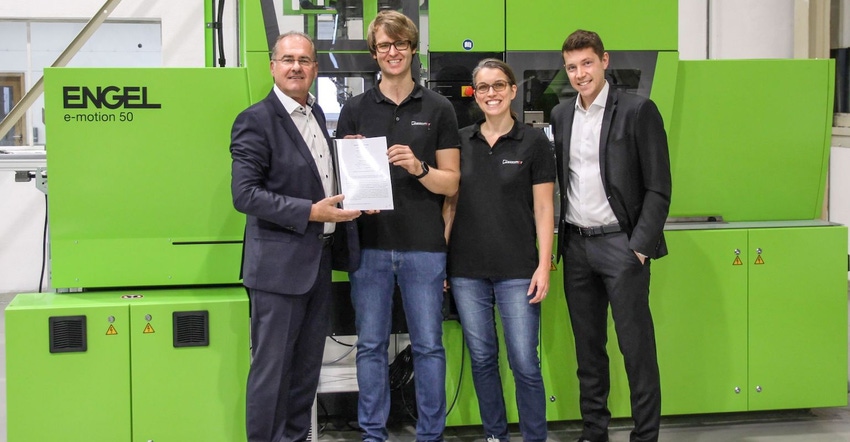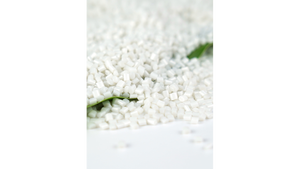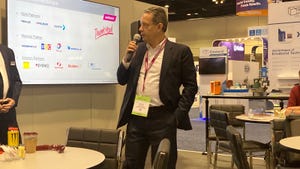Injection-Moldable Glass-Plastic Blend Has Clear Potential in Automotive, Medical Sectors
Machine builder Engel inks cooperative agreement with German startup Glassomer to develop new applications for glass injection molding technology.
January 20, 2023

Founded in 2018, German startup Glassomer GmbH specializes in the manufacture of injection-moldable quartz glass and glass parts. Glassomer has developed plastic-glass blends in pelletized form that can be injection molded at temperatures of 130°C and with a cycle time of less than 20 seconds. Following demolding, the plastic is removed by debinding. The parts are then sintered, precisely preserving component geometry down to the microstructure level. Further, premium optical quality surfaces can be achieved without post-processing.
"The technology offers huge potential, not least for the optical, medical technology, solar, chemical, and automotive sectors. Our goal is to tap this potential," said Clemens Kastner, Product Manager Technologies at injection machine builder Engel. "Together with Glassomer, we are lowering the barriers for getting started with this new technology and paving the way for high-volume mass production. Glassomer materials can be processed in injection molding. The important factor is that the injection molding machines meet strict precision requirements.”
Industrialization of glass injection molding technology
Glass forming typically requires very high temperatures and toxic chemicals. The injection molding process, on the other hand, is a significantly more energy-efficient, cost-effective, and sustainable alternative. Another motivation for processing glass via injection molding is greater design flexibility. In injection molding, virtually arbitrary shapes can be produced in a very short time. Many of these would be unthinkable in traditional glass processing.
Engel and Glassomer are working together on the industrial implementation of glass injection molding technology. The first sample inspections for series production applications are already taking place on Glassomer's new production floors in Freiburg.
To meet strict precision requirements, including in the microtechnology space, Engel has furnished an all-electric e-motion 50 TL injection molding machine to Glassomer along with an integrated viper linear robot suited for cleanroom use.
Potential for microfluidics, optics, and sensor systems
The ongoing joint development work benefits from Engel's know-how and many years of expertise in optics and micro molding. The e-motion TL machine series was originally developed for the production of smartphone camera lenses made of polycarbonate and cyclo-olefin copolymers. It is widely used in this industry, according to Engel.
"In optics, the light sources being produced are becoming smaller all the time. In turn, this means higher and higher energy densities, which necessitate the production of fine lens structures in glass with high chemical and thermal stability," said Kastner, explaining why Engel is motivated to work with glass as a material.
Lenses for ultra-high-resolution smartphone cameras and sensor applications, for example in vehicles, are one focus of development. In addition, glass injection molding for microfluidic and lab-on-a-chip applications offers massive potential for combining molding precision with cost effectiveness and sustainability.
About the Author(s)
You May Also Like




